The end of wet markets in Guangzhou?
The first few cases of Covid-19 were believed to have been linked to the Huanan Seafood Wholesale Market in Wuhan, where some live wild animals were available for sale. As the virus comes under control in China, traditional agricultural markets in China are coming under the spotlight amid efforts to stamp out illegal wildlife trading. While these markets in the main never had exotic wildlife for sale, the overhaul taking place is threatening the old way of life for many shopkeepers and market-goers. Zeng Shi takes a look at a microcosm of that phenomenon in Guangzhou.
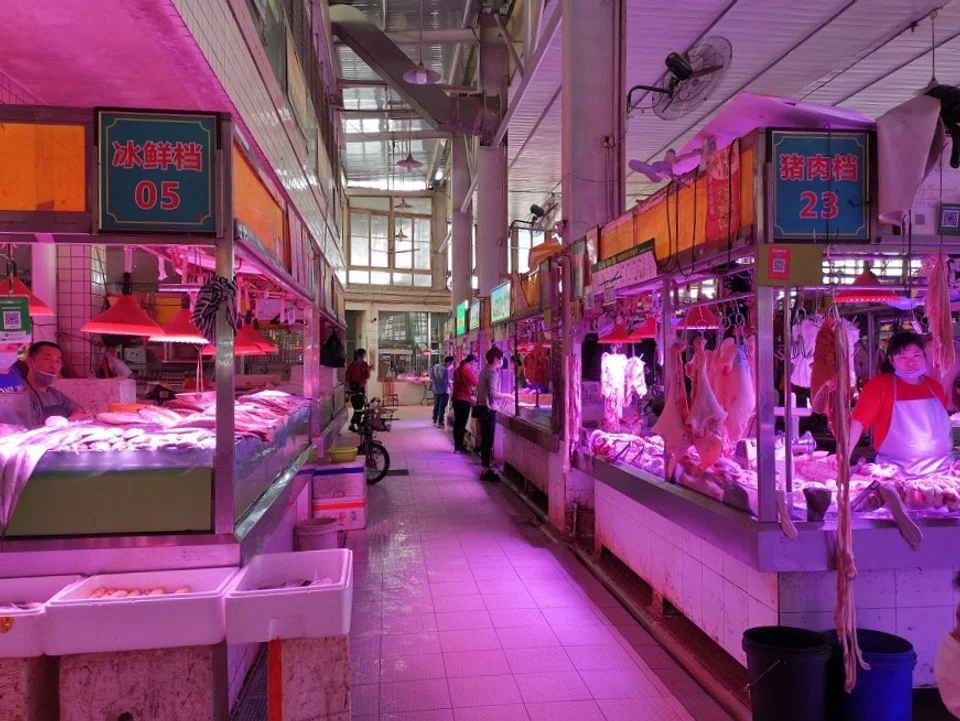
(Photos: Zeng Shi)
Vegetables, aquatic products, poultry, dried goods, delicatessen products, street food... At Longdong (龙洞) Market in Guangzhou, different agricultural products are categorised into different sections and stalls for sale. Above some stalls hang information boards detailing stall numbers, product descriptions, prices and so on.
Like most agricultural products markets across China's cities, Longdong Market is bustling and noisy. As a customer is bargaining on one end, a stall owner is shouting from another. The environment is messy, and the floor is always wet and slippery - its only saving grace is its wide array of reasonably-priced products, catering to the daily needs of residents living nearby.
A poultry stall owner says that the Guangzhou people seek out fresh and live ingredients - they only buy fish and prawns that are alive, and avoid all types of frozen meat. Before the Covid-19 outbreak when a section of the market could still sell live poultry, market-goers would pick the ones they wanted before the stall owners slaughtered them on the spot.
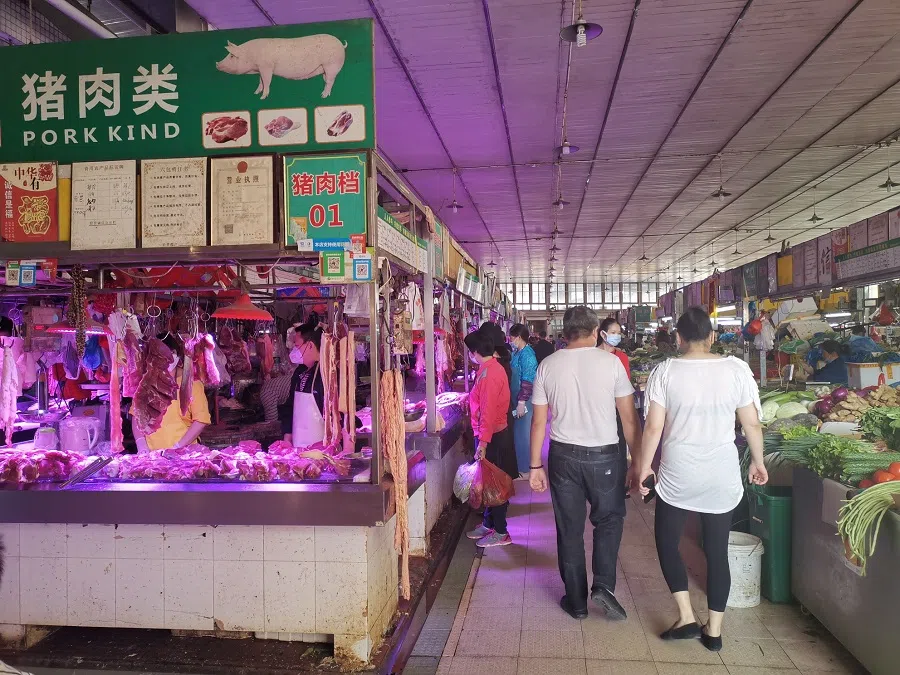
Following the coronavirus outbreak, China banned the trading of wild animals, leading to the cessation of live poultry sales in the markets of some provinces. For example, at the Longdong Market, gone are the days where live chickens waited, locked up in cages before they were slaughtered. Instead, poultry stall owners now properly process them first before selling them at the market, emphasising that they are freshly slaughtered on the same day.
Paranoia after Wuhan market becomes centre of epidemic
The first batch of coronavirus patients in Wuhan was mostly related to the Huanan Seafood Wholesale Market. Prior to the outbreak, some stall owners sold wild animals including Chinese edible frogs, snakes, hedgehogs, and so on. Following the outbreak, the wholesale market quickly ceased operations for deep cleaning. Some media began reporting about the worrying sanitary conditions of the market, drawing international attention to the cleanliness and hygiene of traditional Chinese agricultural markets.
According to The Guardian, former Beatles band member Paul McCartney called for China to close its "medieval" wet markets, claiming that such markets caused the transmission of the coronavirus and had the same effects on the world as "letting off atomic bombs".
Chinese foreign ministry spokesperson Geng Shuang replied that "there's no 'wildlife wet market' in China". He added that they did have "farmers' markets and seafood markets"...
During the 50th anniversary of Earth Day on 22 April, US Secretary of State Michael Pompeo also mentioned that "'wildlife wet markets'... create risks for the generation and spread of diseases, and may have played a critical role in the spread of the Covid-19 pandemic". He called for China and other countries to close such markets permanently to reduce risks to human health.
In response, Chinese foreign ministry spokesperson Geng Shuang replied that "there's no 'wildlife wet market' in China". He added that they did have "farmers' markets and seafood markets", where "meat, fish, vegetables, seafood and other fresh produce are sold" and where a" very small number of them sell live poultry".
Geng went on to say that "China's legislature has banned illegal hunting, trading, transporting and consumption of wildlife" and as selling wild animals in these markets is illegal, those who violate the law will be punished. He also said, "After Covid-19 broke out, competent authorities and local governments further strengthened regulation on these markets and adopted strict quarantine and testing to ensure all measures concerning the prevention and control of zoonotic diseases are well implemented."
The crux of the issue is wildlife trading
A stall owner of Guangzhou's Longdong Market shares that vegetable stall owners often have to make the vegetables look presentable before putting them up for sale. They also have to periodically spray water on the vegetables to prevent them from wilting. Additionally, aquatic live products like fish, prawns, and molluscs also require a big volume of water to stay fresh in, thus the floors of traditional agricultural markets are wet all the time.
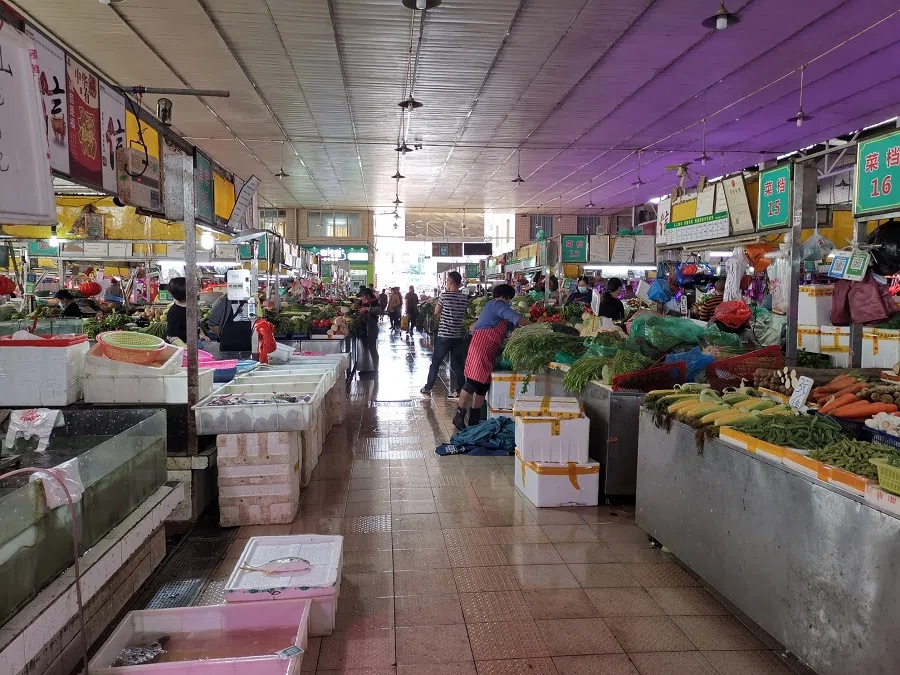
Rather than whether the market floor is dry or wet, the crux of the aforementioned China-US tussle ultimately lies in wildlife trading. The hunting, trading, transporting or consuming of wild animals has been prohibited by law since February this year to break people's undesirable habit of indiscriminate wildlife consumption and to safeguard public health.
Following this announcement, various regions implemented related regulations. Guangdong, also known as the province of game meat, passed "Regulations on Wild Animals Protection of Guangdong Province" in end-March. This act further increased the punishment for the illegal hunting, trading, transporting, and eating of the country's key protected animals.
...some people were found to be secretly trading wildlife including bamboo rats, mountain chickens, snakes, and even cats at Jiangcun (江村) Agriculture Wholesale Market in Guangzhou.
The Guangdong people have a habit of eating snakes, bullfrogs, crocodiles and other wild animals. Yet, even prior to the outbreak, uncooked meat from such animals was only available for sale in some wholesale markets or agricultural markets in the remote suburbs, and was not commonly seen in agricultural markets in the city. Since the outbreak, Guangdong heightened its controls and banned the trading of some wild animals. According to Yangcheng Evening News (《羊城晚报》), stalls selling turtles, frogs, snakes, and crocodiles in the city's Huangsha (黄沙) Aquatic Products Market were told to destroy these products themselves. Speciality stalls selling these products have also been shut indefinitely.
However, such harsh measures were still unable to deter some people from continuing their illegal trade. In late April, Guangzhou police reported a case involving the alleged sale of exotic and endangered wildlife and their related products, arresting four suspects and seizing 84 different aquatic turtle species protected by the country. In late January, the Southern Metropolis Daily (《南方都市报》) had also reported that some people were found to be secretly trading wildlife including bamboo rats, mountain chickens, snakes, and even cats at Jiangcun (江村) Agriculture Wholesale Market in Guangzhou.
Traditional agriculture markets caught in the fray
Although the crux of the issue is wildlife trading, traditional wet markets that did not sell wild animals are also undergoing a process of transformation.
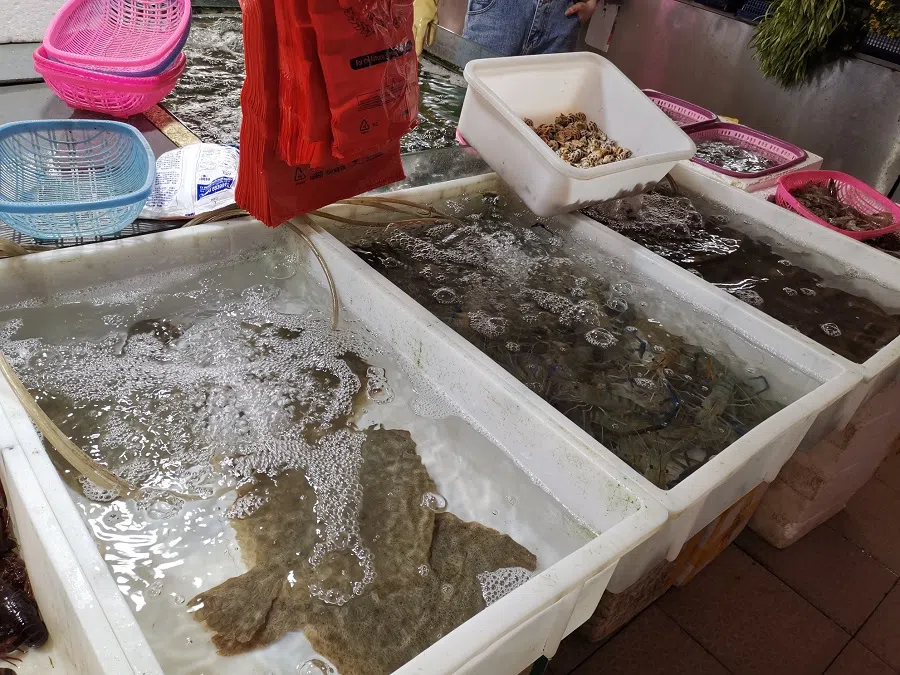
Peng Peng, vice president of Guangdong System Reform Research Society (广东体制改革研究会) tells Lianhe Zaobao that traditional agricultural markets pose a hygiene challenge as they operate in wet environments and even sold live poultry in the past. However, the presence of these markets is also related to the eating habits of the local residents. For example, because of consumer demand, pigs are slaughtered on the same day that they are sold, aquatic products have to be alive and fresh, and after the ban on live poultry in markets was implemented, consumers expect the next best thing, i.e., chicken that is freshly slaughtered and not frozen. If these habits remain unchanged, fundamental improvements to the market's environment will be difficult to achieve.
Cold chain logistics inadequate
Peng points out that while the issue of establishing cold chain logistics (the technology and process that allows for the safe transport of temperature-sensitive goods and products along the supply chain) has already been discussed in China for a long time, until today, the system is far from complete. This is because the implementation requires an overhaul to the system at every layer of the supply chain.
For example, most small fishing boats are unable to freeze their aquatic products immediately after they return to shore. Additionally, the processes of storage, transportation, and sales have to accommodate suitable low-temperature environments. Once deviations occur in any phase, the texture of the ingredients could be affected. Without a satisfactory cold chain logistics process that can provide an alternative, the people's habit of eating live seafood would be difficult to change.
...many still prefer agricultural markets out of habit rather than monetary concerns.
To Peng, the establishment of China's cold chain logistics still has a long way to go. However, a positive change is that the number of supermarkets selling fresh produce in various regions is increasing, and many consumers are slowly adapting to buying groceries at the supermarkets.
However, many still prefer agricultural markets out of habit rather than monetary concerns. Peng believes that the process of transitioning from an agricultural market to a supermarket is a gradual one, just like fostering the habit of sorting trash for the recycle bin which requires a change in people's lifestyles. If this is a priority, the government needs to proactively encourage the change.
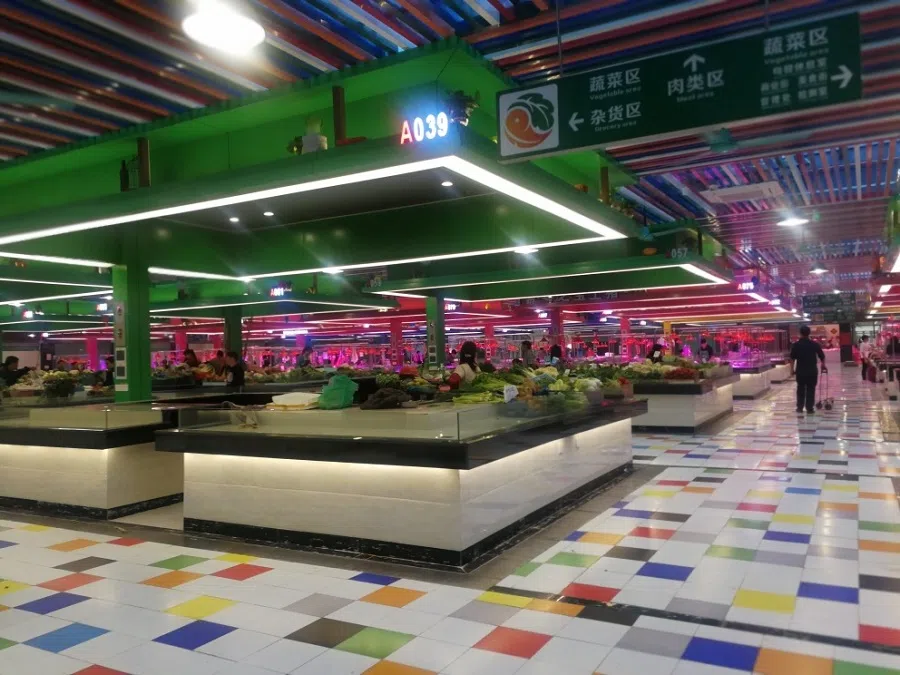
In actual fact, improvement works to tackle hygiene issues in traditional markets have been gradually implemented across various regions in China in recent years. In 2018, 51 markets in Guangzhou completed their upgrading works and were renamed as "new markets" (新街市). Their environmental standards and facilities have greatly improved with some markets even adding nursery rooms and resting sofas in a bid to enhance the consumer's grocery-shopping experience.
Changing market-goers' mindsets takes time. Madam Fu, a market-goer residing at Guangzhou's Tangde Road at the Tianhe district told this reporter that although the nearby Southeast Market was given a facelift when it became a new market, she still prefers to buy groceries at traditional markets further away as the latter sells more affordable products. She believes that prices at the new market are bound to be steeper, due to the higher rents that need to be paid.


![[Big read] When the Arctic opens, what happens to Singapore?](https://cassette.sphdigital.com.sg/image/thinkchina/da65edebca34645c711c55e83e9877109b3c53847ebb1305573974651df1d13a)


![[Video] George Yeo: America’s deep pain — and why China won’t colonise](https://cassette.sphdigital.com.sg/image/thinkchina/15083e45d96c12390bdea6af2daf19fd9fcd875aa44a0f92796f34e3dad561cc)